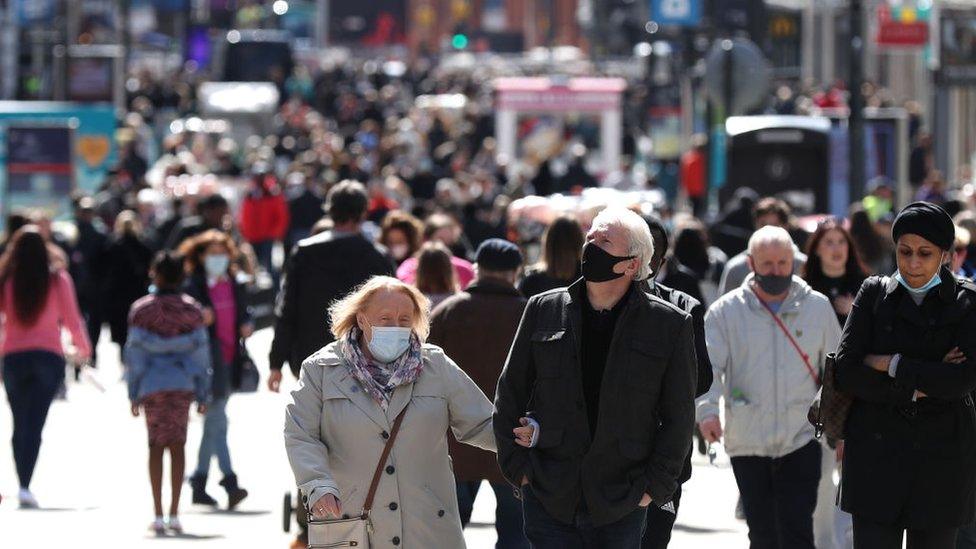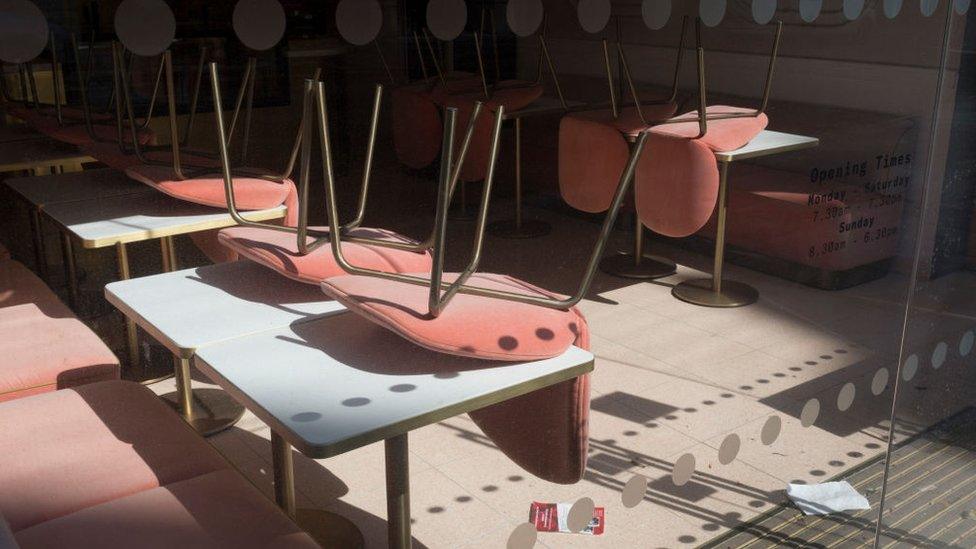Shopper numbers still almost 30% below pre-pandemic levels
- Published
- comments

Shoppers staged a cautious return to the High Street last week as lockdown curbs eased further, but numbers were still far below pre-pandemic levels.
Footfall across all UK shopping destinations was up just 1.1% week-on-week, analyst Springboard said.
However, it remained 28.7% lower than for the same period in 2019.
Springboard's insights director, Diane Wehrle, said there was "significant ground to be made up" as retailers emerge from the coronavirus crisis.
But bricks-and-mortar retailers could take heart from the fact that evenings saw a big influx of shoppers, with figures after 17:00 notably healthier than during the day.
All non-essential shops in England were allowed to reopen on 12 April under the government's roadmap to reopening.
And last Monday, 17 May, saw a significant further easing of restrictions in England, with restaurants and pubs allowed to serve customers indoors again.
Evening boost
There were hopes that this loosening would lure many more people back to shopping areas. But both high streets (+2.4%) and shopping centres (+1%) saw only a modest week-on-week rise in footfall in the week beginning 16 May, Springboard said.
In retail parks, meanwhile, footfall dipped by 1.7%.
"Footfall increased across the majority of the different town types, ranging from +2.3% in coastal towns to +11.8% in central London," Springboard said about the week-on-week figures.
"However, in more local high streets, footfall declined as consumers gravitated towards larger destinations which have a more substantial dining offer (-4.1% in outer London and -2% in market towns)."
Ms Wehrle of Springboard said the reopening of indoor dining "certainly supported footfall in UK retail destinations" in the face of "prolonged and often severe rain" during the week.
However, the effect was strongest after 17:00, with a clear upturn in the evenings as people flocked to pubs and restaurants.
Central London saw the biggest evening boost, with footfall up 16.3% week-on-week after 17:00.
The big losers were retail parks, which saw a 1.7% decline in footfall compared with the previous week, while high streets and shopping centres attracted more people.
Even so, Springboard said retail parks remained "the most resilient of the three destination types", faring less badly relative to 2019 than the others.
Related topics
- Published14 July 2021

- Published16 May 2021
